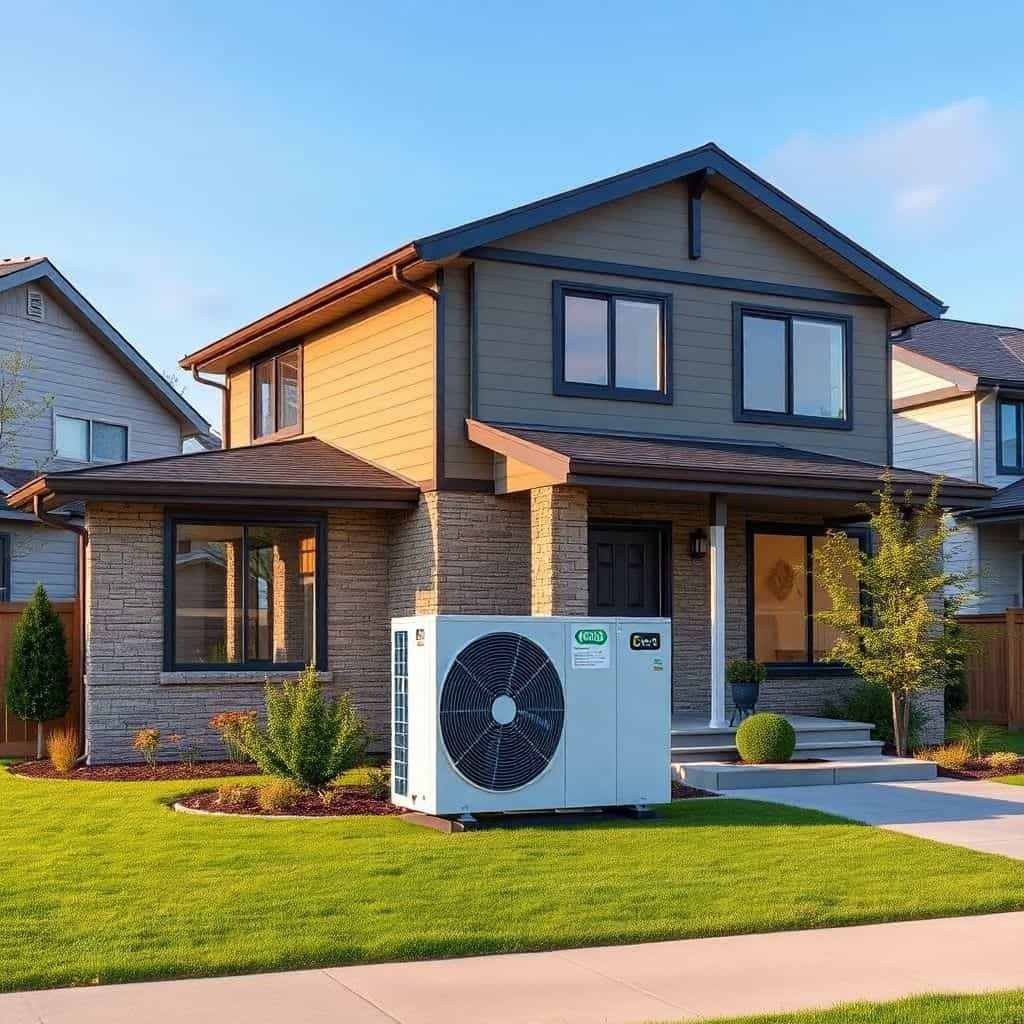The transition towards renewable energy sources is gaining momentum globally, and heat pumps are at the forefront of this revolution for residential heating. In 2025, technological advancements and eco-conscious consumer preferences are expected to reshape the heat pump market significantly.
Heat pumps, which function by transferring heat from the outside environment into homes, offer a highly efficient and environmentally friendly alternative to traditional heating systems like boilers or electric heaters. They work on the principle of heat transfer rather than generating heat through combustion, making them a more sustainable option. Experts, like Dr. Elena Thompson from the Institute of Renewable Energy, argue that ‘heat pumps have the potential to drastically reduce greenhouse emissions from residential heating.’
A glimpse into the upcoming year reveals a host of innovations. One of the most discussed advancements is the integration of smart technology in heat pumps. Models expected to launch in 2025 are anticipated to include AI-driven features that adapt to weather changes and optimize energy usage while learning homeowner temperature preferences. The inclusion of machine learning algorithms can further enhance their efficiency and provide tailored comfort.
Moreover, the integration of internet-connected features has become a standard aspiration among manufacturers. This trend stems from the growing demand for smart home ecosystems where appliances communicate and operate seamlessly together. A leading manufacturer, EcoTherm, is set to release a model with an advanced IoT platform that allows for remote monitoring and control, aiming to offer enhanced convenience and energy management.
In terms of performance, hybrid systems that combine air-source and ground-source heat pumps are gaining traction. These systems are designed to maximize energy efficiency by utilizing ground-source heating during colder months and air-source during milder temperatures. With advancements in thermal conductivity materials and antifreeze solutions, these hybrid systems are becoming more reliable and cost-effective.
One critical factor driving the adoption of heat pumps is their long-term cost savings. Despite higher upfront costs compared to traditional heating methods, heat pumps offer significant savings on energy bills due to their high-efficiency ratings. The International Energy Agency reports that homeowners can save up to 50% on heating costs annually after switching to a heat pump system.
As competition heats up, several companies are offering compelling warranties and financing options to attract consumers. Brands like GreenAir and ClimaHeat are providing up to ten years of warranty coverage, along with financing plans that spread the initial investment over several years, making heat pump technology more accessible to a broader audience.
Market trends indicate a rising demand for heat pumps in regions with moderate to cold climates. Europe, in particular, is witnessing a significant surge in heat pump sales, spurred by stringent energy efficiency regulations and government incentives. According to a recent report by the European Heat Pump Association, sales in Europe are projected to increase by 12% annually over the next five years.
In North America, awareness about energy conservation and sustainable living is contributing to increased heat pump adoption, especially in the northern states and Canada. The U.S. Department of Energy has recently launched incentives aimed at offsetting installation costs, which is expected to accelerate market penetration significantly.
When considering the best value for money, the 2025 line-up of models showcases a range of options catering to different budgets. The ThermX Hybrid, priced moderately, offers compatibility with smart home systems, solid performance in variable climates, and an attractive seven-year warranty. For premium-segment buyers, the EcoTherm Intelligent Series presents an impressive array of AI-integrated functionalities, though at a steeper price.
The continuous evolution of heat pump technology is poised to play a crucial role in achieving climate goals and providing efficient heating solutions for independent homes. As these systems evolve, they not only promise sustainability but also improved liveability and convenience for homeowners. The year 2025 is set to mark significant milestones in making heat pumps a mainstream residential heating solution.
You may also like
Pellet Stove: Innovative designs and regional preferences
As energy efficiency becomes a global priority, pellet stoves continue to gain popularity across various regions. 2025 introduces cutting-edge models equipped with advanced technologies, providing sustainable heating solutions with competitive pricing. This article delves into the latest market trends, innovative designs, and regional preferences, offering a comprehensive guide for consumers.
The Evolution of Gas Boilers: What to Expect in 2025 and Beyond
This article explores the latest advancements in gas boiler technology anticipated for 2025, including innovative models, market trends, and purchasing advice. We analyze market trends, geographical influences on sales, and offer insights into the best value models currently available.
Electric Boilers: Market Trends and Best Buys
Electric boilers have become a preferred choice for many due to their efficiency and eco-friendliness. This article explores the latest innovations, market trends, and offers buying suggestions for the most innovative and cost-effective electric boilers.
Offers and Market Trends in Apartment Heat Pumps
With the ever-increasing focus on sustainable living, heat pumps have become an essential fixture in modern apartment living. As 2025 unfolds, cutting-edge models, enticing offers, and groundbreaking technologies are transforming the landscape of heat pumps for apartments. This article delves into the latest developments, market trends, and the best value propositions for these vital appliances.
